Elections
Politics
ABDALLAH SAMBI, AFRICA, AUSTRALIAN ASSOCIATED PRESS, AZALI ASSOUMANI, COMOROS, ELECTION FRAUD, GOVERNANCE, GOVERNMENT, HAMIDOU KARIHILA, HOPE OF THE COMOROS, INDIAN OCEAN, INDIAN OCEAN ARCHIPELAGO, JUWA, NO, NOUR EL - FATH, OPPOSITION, POLITICS, PRESIDENTIAL ELECTION, REUTERS, SUPREME COURT
Omar El-Sharif
Comoros Voters Initiate Elections Amidst Political Tensions and Controversy
Voters in Comoros are casting ballots in parliamentary elections for a 33-seat legislature, a year after President Azali Assoumani’s disputed re-election. Approximately 338,000 voters are registered, with nearly 100 candidates contesting. Opposition factions remain critical of Assoumani’s governance and call for reforms, while some parties have urged a boycott of the elections. Results are anticipated by Friday.
Voters in Comoros are participating in parliamentary elections to fill the 33-seat legislature, following the controversial re-election of President Azali Assoumani last year, which was alleged by the opposition to have involved substantial electoral irregularities. The polling stations opened early on Sunday, with records indicating that approximately 338,000 eligible voters are registered. The previous parliamentary elections took place in January 2020, and nearly 100 candidates have been selected by the Supreme Court to compete in this election.
Since assuming power through a coup in 1999, President Assoumani has faced criticisms for authoritarian tendencies, with opponents alleging that he aims to elevate his eldest son, Nour El-Fath, to power upon the completion of his term in 2029. In a significant political development, Assoumani provided his son with extensive new authorities in 2024, which included the management of all government operations. Some opposition factions, such as the Juwa party, led by former President Ahmed Abdallah Sambi—who is currently serving a life sentence—have advocated for a boycott of the elections. However, this call has been met with resistance from other opposition groups.
Hamidou Karihila, a candidate from the opposition Hope of the Comoros party, remarked, “The Azali regime is weakened … by participating in these elections we are contributing to further exposing the flaws in its system and accelerating its inevitable fall.” Results from this election are expected to be announced by Friday, as the political landscape of Comoros remains tense amidst allegations of electoral misconduct and calls for reform.
The electoral context in Comoros is complex, having been shaped by President Azali Assoumani’s prolonged rule since 1999. His leadership has been marked by controversies, including accusations of election fraud and political repression. The recent election comes on the heels of his controversial victory last year, further polarizing the political sphere. The current parliamentary election is pivotal in determining the future political stability of the archipelago, as various parties vie for power amidst growing dissent.
In summary, the parliamentary elections in Comoros reflect a critical juncture in the nation’s political narrative, characterized by President Azali Assoumani’s contentious governance and the rising demands for reform from opposition groups. The outcome of this electoral process could significantly influence the potential for political change and the future governance of the Comorian people.
Original Source: www.moreechampion.com.au
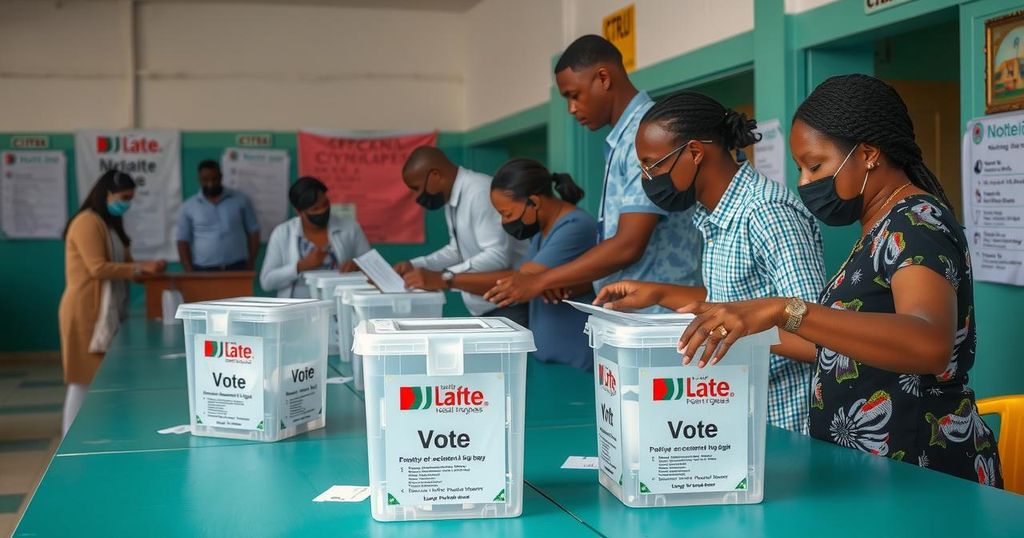
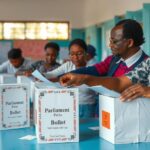
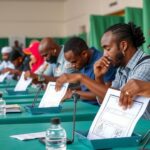


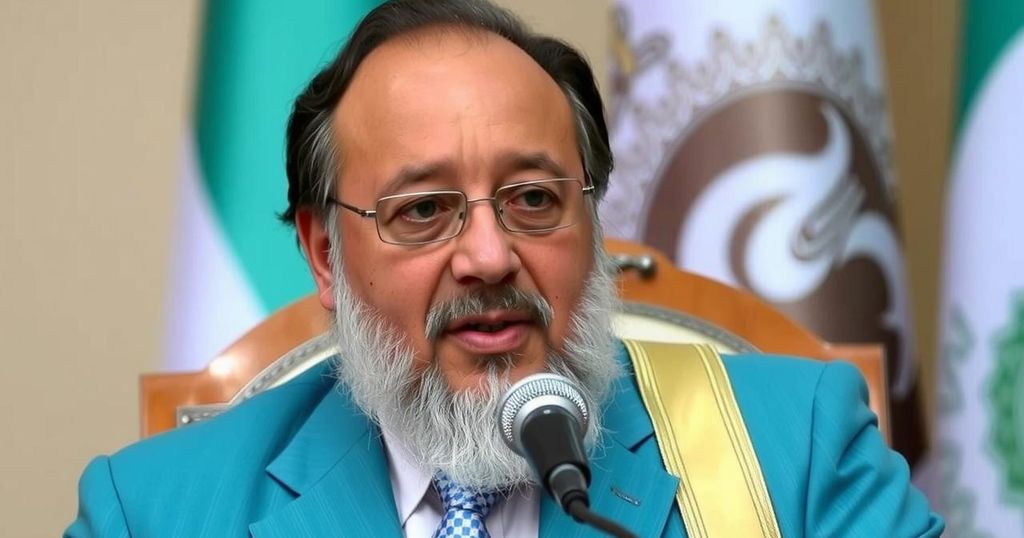
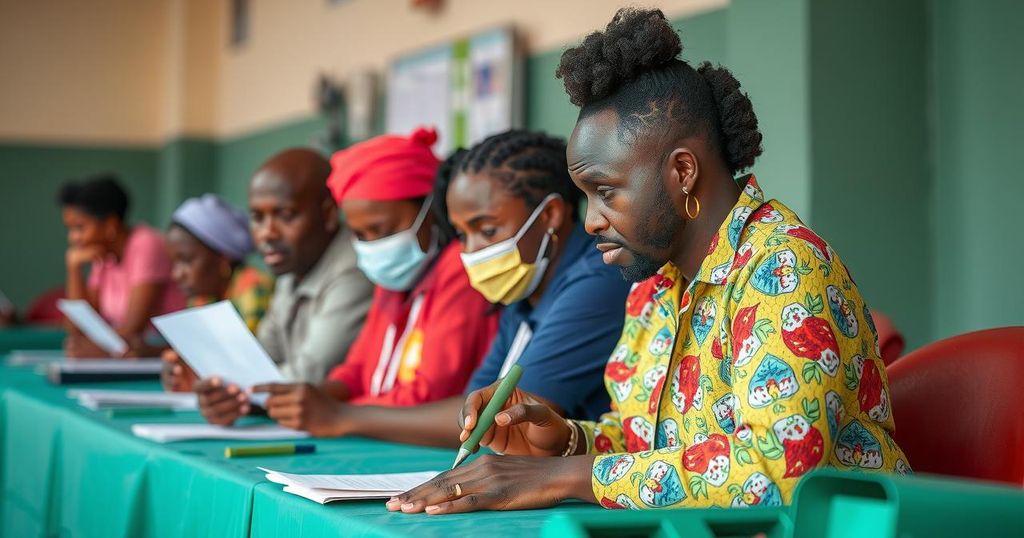
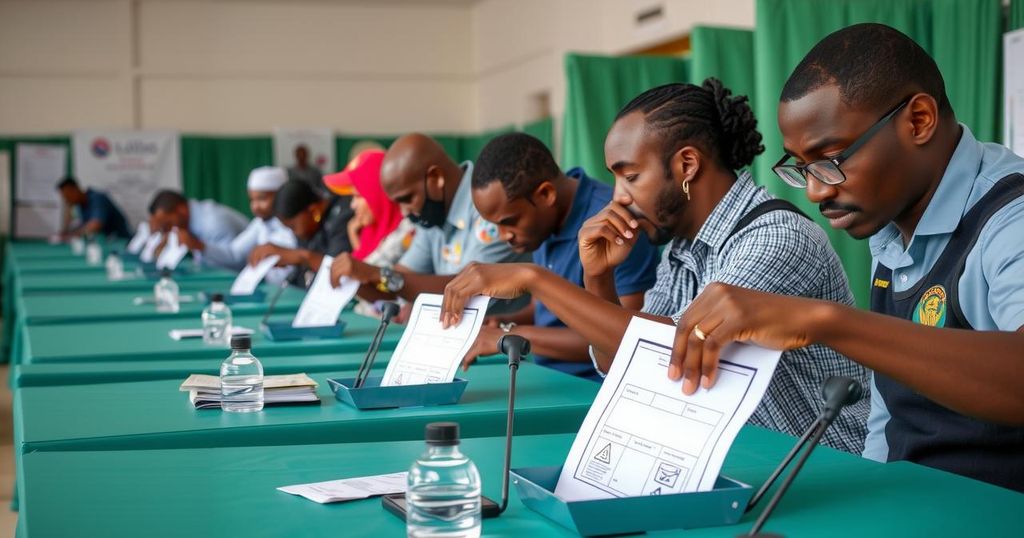
Post Comment